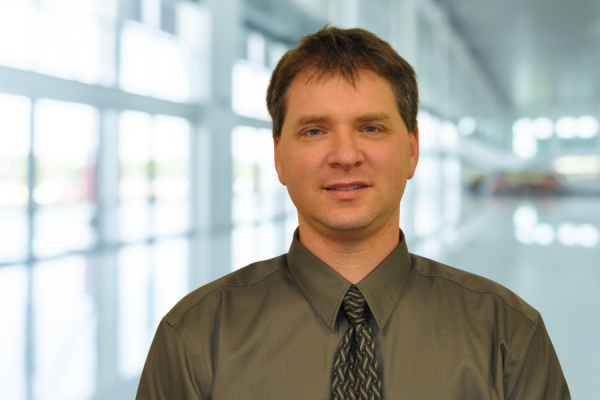
Faculty Fellow Profile: Gabriel Dichter
Using novel brain imaging approaches, clinical psychologist Gabriel Dichter, PhD, seeks to understand how treatments for autism and mood disorders work. His research is synergistic with developmental disabilities explorations happening at the UNC Frank Porter Graham Child Development Institute (FPG) which led to Dichter becoming an FPG faculty fellow last year. He is also a professor of psychiatry at the UNC School of Medicine, and director of the UNC Intellectual and Developmental Disabilities Research Center (IDDRC).
Dichter’s lab studies both autism and major depression, using neuroimaging to study how interventions work in these diagnoses. While the symptoms are distinct, these conditions share certain neurobiological mechanisms. Dichter says that he always tells the trainees in his lab that although the disorders are different in terms of clinical presentation, neurobiological research for any psychiatric disorder shares many common elements, including good research design, innovative ways to measure neurobiological constructs, and robust statistical approaches to evaluate empirical evidence.
While an undergraduate psychology major at Haverford College, Dichter realized his love for empirical research. After graduation, he worked as a research assistant at Columbia Presbyterian Medical Center for four years, solidifying his passion for biological psychiatry research. He attended Vanderbilt University as a clinical psychology graduate student just as brain imaging was starting to be used widely in psychiatry research. While there, he focused on brain imaging methods to study mood disorders. It was in his postdoctoral position at the Carolina Institute for Developmental Disabilities (CIDD) where Dichter’s training in autism began. He has remained at UNC since, using neuroimaging to study the brain basis of autism.
“I would like to invite anyone who does research at UNC related to developmental disabilities to please talk with me about your work so we can discuss how to best support what you do and how to connect you with other labs doing complementary research,” says Dichter. “Hopefully by sharing resources, the sum will be more than the individual parts, and we will all learn and grow together.”
Dichter believes that UNC is home to some of the most groundbreaking developmental disabilities research in the world. “When Joe Piven directed the UNC IDDRC, he instilled in me the belief that we can hasten breakthrough discoveries in developmental disabilities by linking preclinical, clinical, and applied research,” says Dichter. “This ‘cells to services’ approach is at the heart of our center grant, which supports developmental disabilities research across the translational spectrum from work on preclinical model organisms to clinical mechanistic studies, as well as implementation science.”
In 2016, UNC became only the fourth institution in the country to have a new type of brain imaging scanner that allows for simultaneous acquisition of positron emission tomography (PET) and magnetic resonance imaging (MRI). One year later, Dichter’s lab used this type of neuroimaging to conduct the first PET-MR study of striatal dopamine binding in autism. Unlike some other forms of neuroimaging, simultaneous PET-MR allows for a more direct linkage with preclinical research because of its molecular specificity. Dichter’s long-term goal is to use this approach as part of a larger program of research that seeks to identify and evaluate novel interventions for autism.
Dichter and FPG Interim Director Brian Boyd, PhD, are planning how the Institute and IDDRC can jointly support research on developmental disabilities at UNC. They will focus on increased access to research and services for under-represented group as well as learning opportunities for trainees across campus interested in developmental disabilities research. As IDDRC Director, Dichter is deeply motivated to foster new collaborations among UNC developmental disabilities researchers from different disciplines. He knows that this requires researchers to work outside of their silos to forge new collaborations, which is just one of the reasons he is excited to serve as an FPG faculty fellow. In addition, he cites FPG’s position at the forefront of efforts related to diversity, equity, inclusion, and access and says that it is an area in which he hopes to learn a lot from Institute colleagues.
“I would like to invite anyone who does research at UNC related to developmental disabilities to please talk with me about your work so we can discuss how to best support what you do and how to connect you with other labs doing complementary research,” says Dichter. “Hopefully by sharing resources, the sum will be more than the individual parts, and we will all learn and grow together.”
